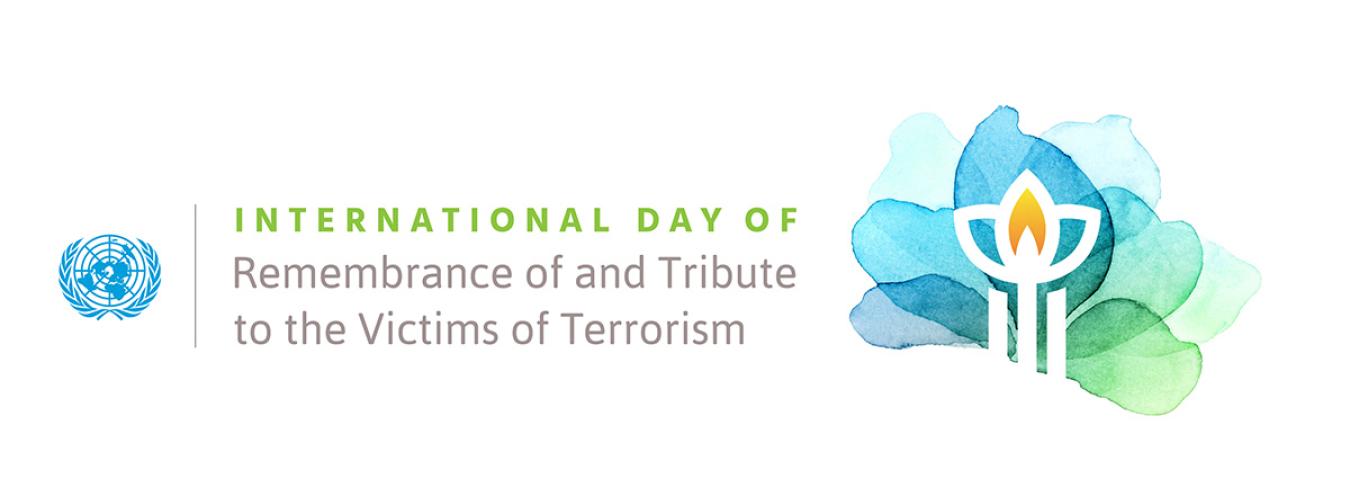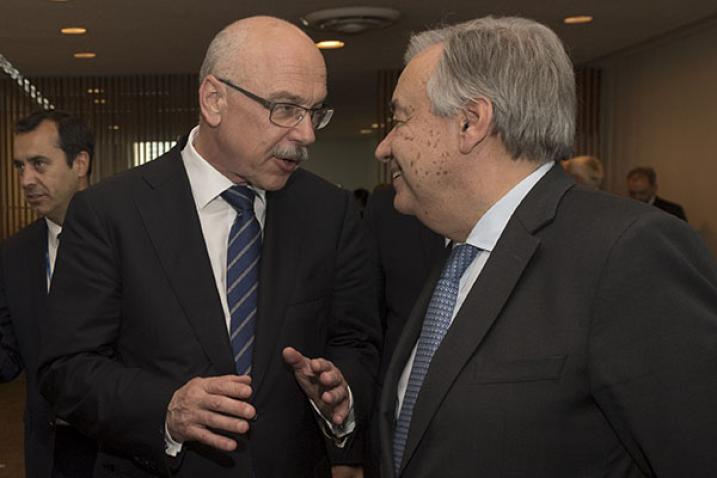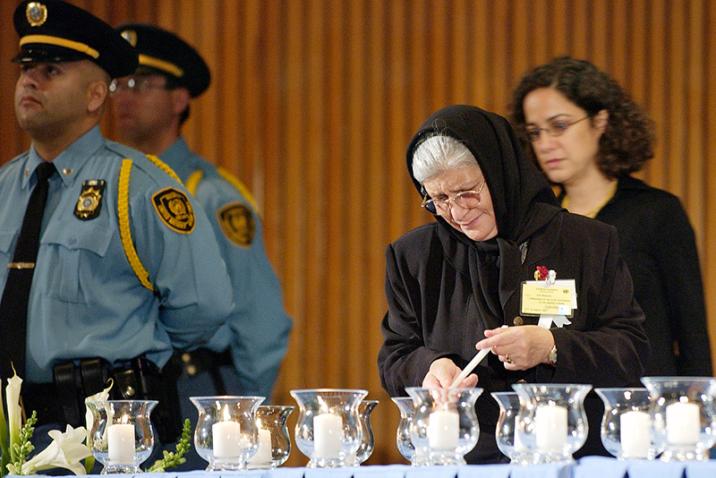Acts of terrorism propagating a wide-range of hateful ideologies continue to injure, harm and kill thousands of innocent people each year.
Despite international condemnation of terrorism, victims and survivors of terrorism often struggle to have their voices heard, their needs supported, and their rights upheld. Victims often feel forgotten and neglected once the immediate aftermath of a terrorist attack fades, with profound consequences for them. Few Member States have the resources or the capacity to fulfil the medium and long-term needs of victims of terrorism to enable them to fully recover, rehabilitate and re-integrate into society. Most victims can only recover and cope with their trauma through long-term multi-dimensional support, including physical, psychological, social and financial.
Member States have the primary responsibility to support victims of terrorism and uphold their rights. The United Nations has an important role in supporting Member States to implement the UN Global Counter-Terrorism Strategy by standing in solidarity and providing support to victims of terrorism; offering capacity building assistance; establishing networks; and offering support to civil society organizations, particularly victims' associations; and encouraging Member States to promote, protect and respect the rights of victims of terrorism. The United Nations provides technical assistance and capacity-building to Member States and victims' associations in better addressing the needs of victims of terrorism.
Background
In its resolution 72/165 (2017), the General Assembly, established the International Day of Remembrance of and Tribute to the Victims of Terrorism to be commemorated annually on 21 August, in order to honour and support the victims and survivors of terrorism and to promote and protect the full enjoyment of their human rights and fundamental freedoms.
In April 2020, mandated by General Assembly resolution 73/305, the United Nations Secretary-General António Guterres published his report on the ‘Progress of the UN system to support Member States in assisting victims of terrorism’ (A/74/790), which calls for the 'enhancement of international cooperation to assist victims of terrorism'.
Member States, through the biennial review resolutions of the Global Counter-Terrorism Strategy have emphasized the important role of victims of terrorism in countering terrorism, promoting international solidarity, preventing violent extremism, and helping Member States recognize and uphold their human rights, and support their distinct needs.
Since the sixth review of the Strategy (2018), developments at the international, regional, and national levels have increasingly demonstrated that support to victims has moved beyond symbolic solidarity towards a more robust engagement to advance their rights and needs. This is reflected in the establishment in 2019 of a Group of Friends of Victims of Terrorism, and the adoption of General Assembly resolution A/RES/73/305 on the enhancement of international cooperation to assist victims of terrorism.
The eighth review resolution, adopted on 22 June 2023 (A/RES/77/298) notes the importance of upholding the rights and supporting the needs of victims of terrorism, in particular of women, children and those affected by sexual and gender-based violence committed by terrorists. It encourages all Member States to develop national comprehensive assistance plans for victims of terrorism and their families to address the immediate-, short- and long-term needs of victims of terrorism.
The resolution welcomed the first United Nations Global Congress of Victims of Terrorism, held in September 2022 at UN Headquarters, encourages the UN Office of Counter-Terrorism, through the Global Victims of Terrorism Support Programme and the United Nations Victims of Terrorism Support Portal, to continue to raise awareness on victims of terrorism and the promotion and protection of their rights. This includes strengthening the capacity of Member States to assist victims of terrorism and strengthen their engagement with relevant civil society and private sector organisations, which can play a valuable role in assisting and supporting victims of terrorism.
2023 Event — Legacy: Finding Hope and Building a Better Future
On the sixth commemoration of the International Day of Remembrance of and Tribute to the Victims of Terrorism, on 21 August 2023, watch and listen to the powerful voices of victims of terrorism as they speak about the way they use their experiences and journeys to create meaningful and positive change by raising awareness about the long-lasting impact of terrorism and by honouring those whose lives were lost and those whose lives were forever altered. For more information about 2023 International Day events, please see bit.ly/INFO-VOT2023 #UNiteforVictimsofTerrorism #VictimsofTerrorism #UNCCT
Resources
Documents
- General Assembly Resolution A/RES/72/165
- Charter of the United Nations
- United Nations Counter-Terrorism Strategy
- Declaration on Measures to Eliminate International Terrorism
Websites
- United Nations Office of Counter-Terrorism
- High-level Conference on Counter-Terrorism
- Victims of Terrorism
- Special Rapporteur on the promotion and protection of human rights and fundamental freedoms while countering terrorism
- Remember the Fallen




